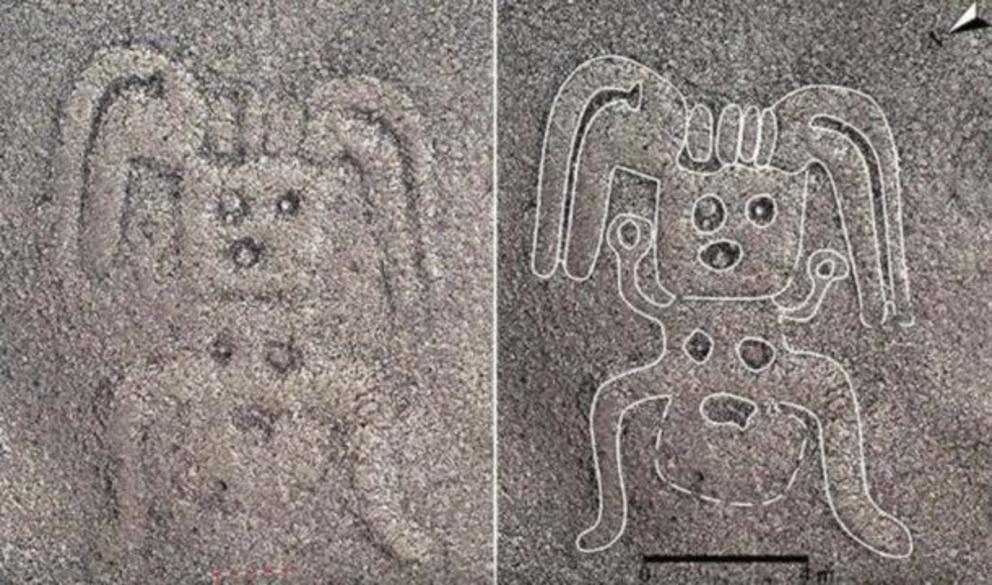Scientists uncovered 143 more huge ancient drawings in Nazca, Peru
In Brief
- The Facts:
A team of researchers from Yamagata University in Japan has just come across 143 More Huge Ancient Drawings In Nazca, Peru.
- Reflect On:
Hows were these done? Who were they done for? Did they draw them the way they did because they thought someone from the sky would be looking down upon them?
Nazca, Peru has become famous for those who like to peer into the world of unsolved mysteries. Take for example the Nazca Lines, a series of large ancient geoglyphs ranging in size, with the largest being 1200 feet long. The world is full of interesting unsolved mysteries that question what we think we know about human history and new discoveries are constantly being made, many of which receive very little attention. This really goes to show just how little we know of human history and how new discoveries show us that there are so many variables that we really need to take into consideration when contemplating it.
Nobody really knows their purpose, and the more one looks into it the more baffling they become.
Experts have pronounced upon the antiquity of Nazca, basing their opinions on fragments of pottery found embedded in the lines and on radiocarbon results form various organic remains unearthed here. The dates conjectured range between 350 BC and AD 600. Realistically, they tell us nothing about the age of the lines themselves, which are inherently as undatable as the stones cleared to make them. All we can say for sure is that the most recent are at least 1400 years old, but it is theoretically possible that they could be far more ancient than that – for the simple reason that the artefacts from which such dates are derived could have been brought to Nazca by later peoples. – Graham Hancock, Fingerprints of the Gods
The latest news is that scientists have recently uncovered 143 more giant ancient drawings in Peru. They did so with the help of artificial intelligence and satellites. Researchers spotted a number of ‘geoglyphs’ depicting animals, people and objects. (source)
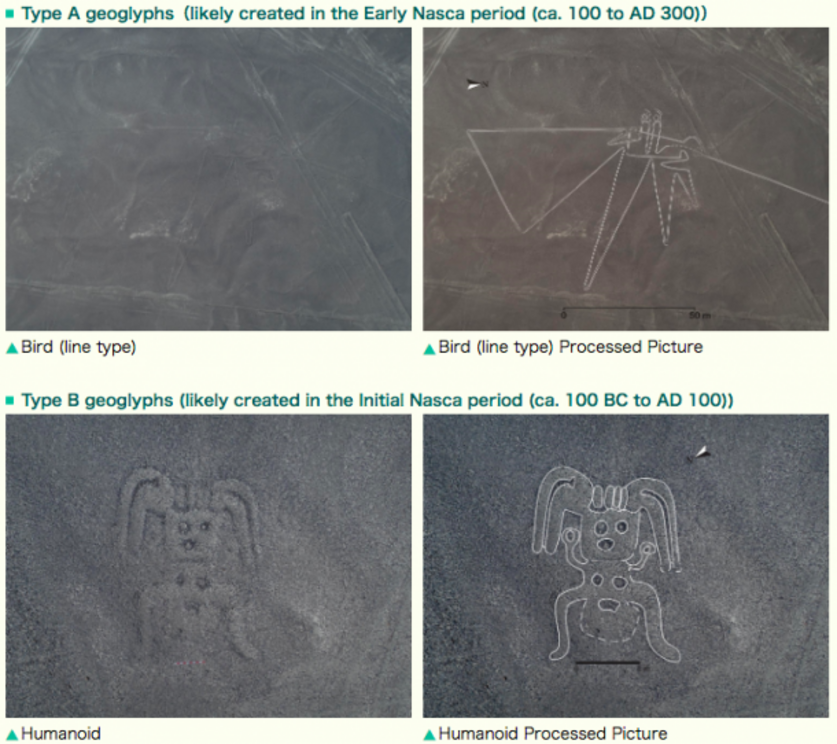
The discovery comes via a team of researchers from Yamagata University in Japan.
These new geoglyphs were identified through fieldwork and analyzing high-resolution 3D data, among other activities conducted up to 2018. The biomorphic geoglyphs are thought to date back to at least 100 BC to AD 300. Additionally, in a feasibility study carried out from 2018 to 2019 together with IBM Japan, the university discovered one new geoglyph by developing an AI model on the AI server IBM Power System AC922 configured with the deep learning platform IBM Watson Machine Learning Community Edition (formerly known as IBM PowerAI) . This study explored the feasibility of AI’s potential to discover new lines, and introduced the capability to process large volumes of data with AI, including high-resolution aerial photos, at high speeds. This represented the first glyph at the site discovered by an AI. (Press release).
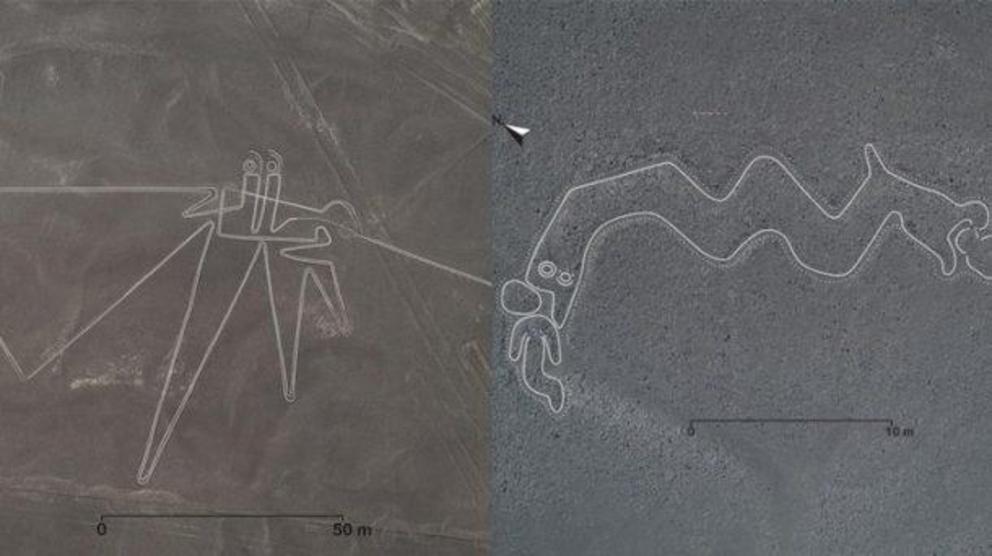
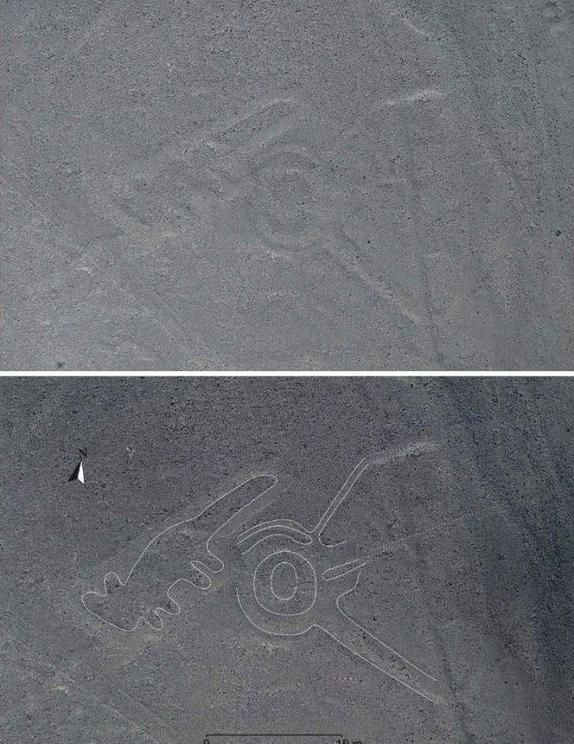
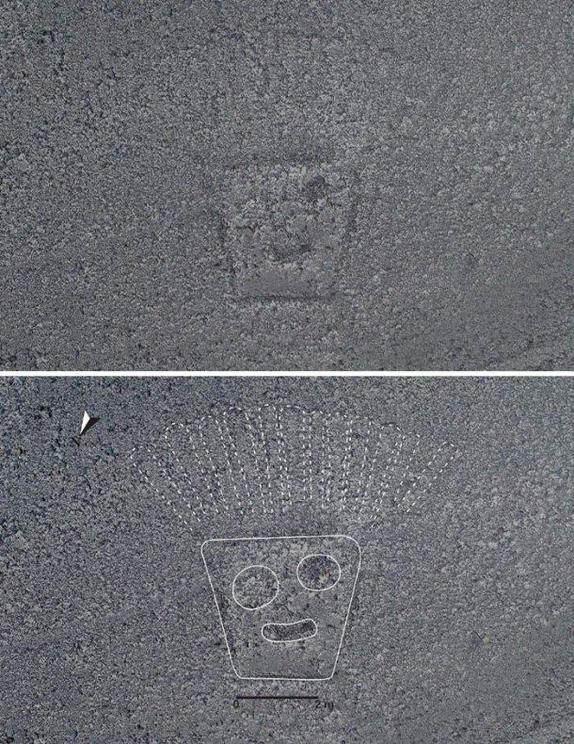
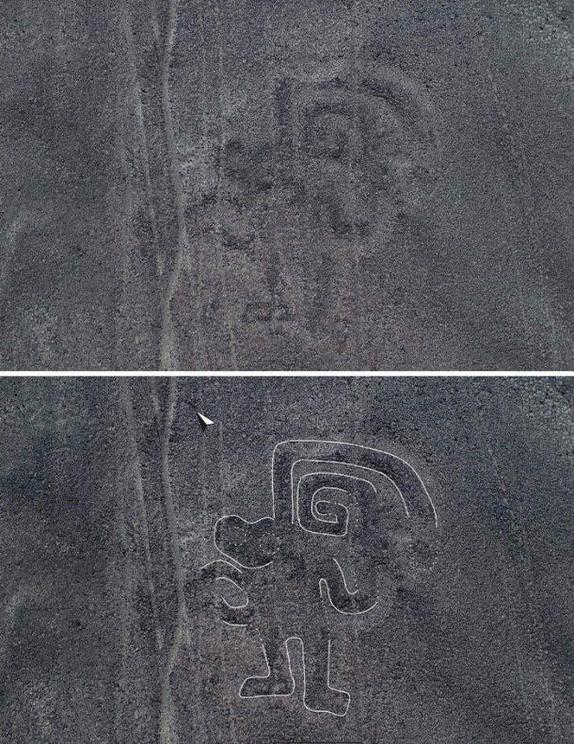
[image id=null]
[image id=null]
The Takeaway
It’s amazing to look back into ancient history and know that we still have so much to discover. These drawings are quite something, and especially hard to do given the size of them and how the makers, supposedly, and no way of having an Ariel view. It’s quite perplexing, and there are many theories. There are some truly remarkable findings all over Peru, even more mysterious than these lines, that still bare no explanation. Theories range from an airfield, all the way to some sort of astronomical significance.

